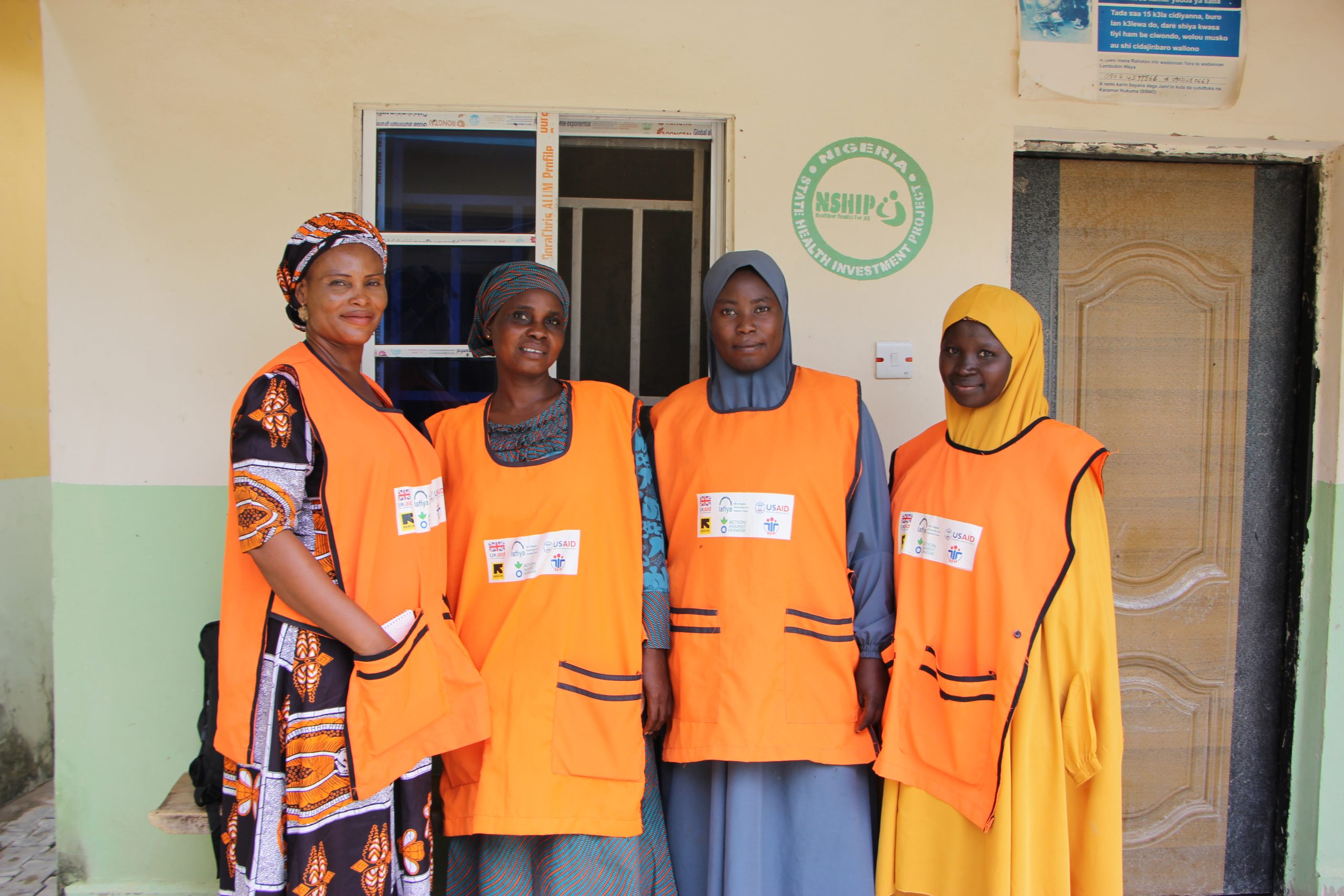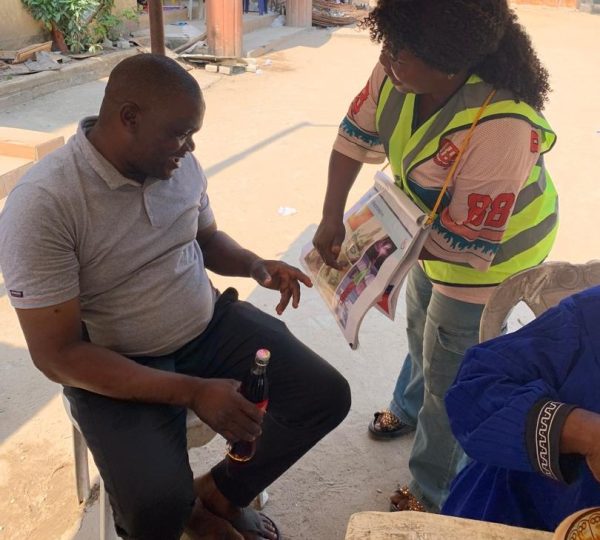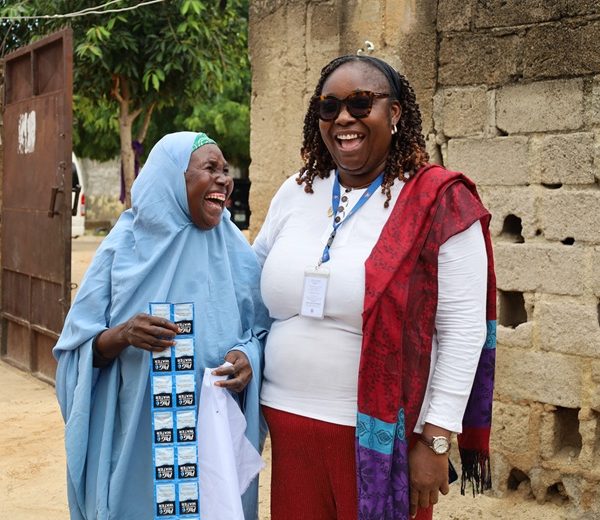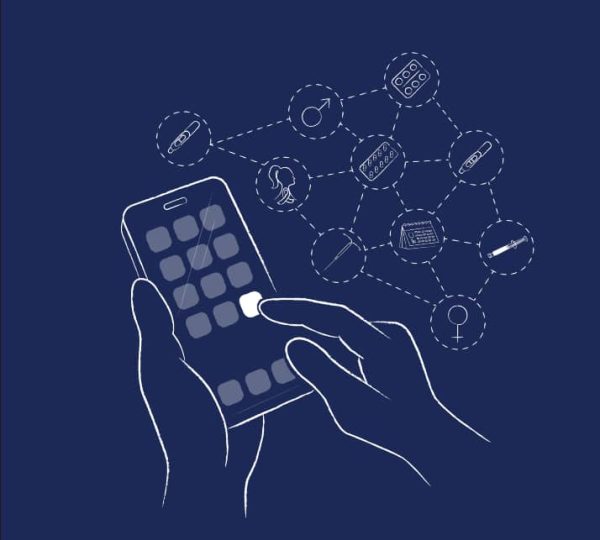“Everything is Normal”: The Impact of CHIPS Agents’ Health Promotion in Northeast Nigeria
By Elizabeth Ogundele
In Borno State, many women and their families are in dire conditions due to limited access to healthcare services, extreme hunger, and poverty. The longstanding conflict, insurgency, and increasing violent attacks have disrupted lives and livelihoods, which has impacted access to essential services such as healthcare and food. This has deepened humanitarian needs in the region and put many women at an increased risk of preventable diseases such as malaria, pneumonia, HIV/AIDS, malnutrition, pregnancy complications and early death.
With support from USAID, the Society for Family Health, through the Health Resilience of the Northeast (HeRoN), has supported and trained Community Health Influencers Promoters and Services (CHIPS) agents in three local government areas (LGAs) in Borno State to bridge the gap in healthcare access for rural communities.
“The CHIPS agents are providing us with the right health information, and this has changed our lives for the better,” says Aisha Zakari, a grateful mother from a community in Bayo LGA.
Critical to achieving Universal Health Coverage and meeting the Sustainable Development Goals, the CHIPS agents help link communities to primary health care services through education and awareness creation, thereby contributing to reduced maternal and child morbidity and mortality.
These agents typically go house-to-house to provide counselling, promote healthy behaviours, drive demand, and refer households, especially women, to primary healthcare facilities for essential services. They are also trained to give basic preventive services and manage fever, cough, and diarrhoea cases in children under five years, as well as over first aid services.
“We initially faced some resistance from the families,” reveals Nkiruka Remignus, one of the 400 dedicated CHIPS agents supported by the HeRoN project. However, through persistent efforts and continuous engagement, “we have built trust in the communities, allowing us to have discussions about the health issues women face,” shares Habiba Mustapha, another CHIPS agent in Kwaya Kusar LGA.
Thanks to the hard work of CHIPS agents like Nkiruka and Habiba, families now embrace family planning, and health-seeking behaviours have improved, leading to a remarkable decrease in disease burden within the community.
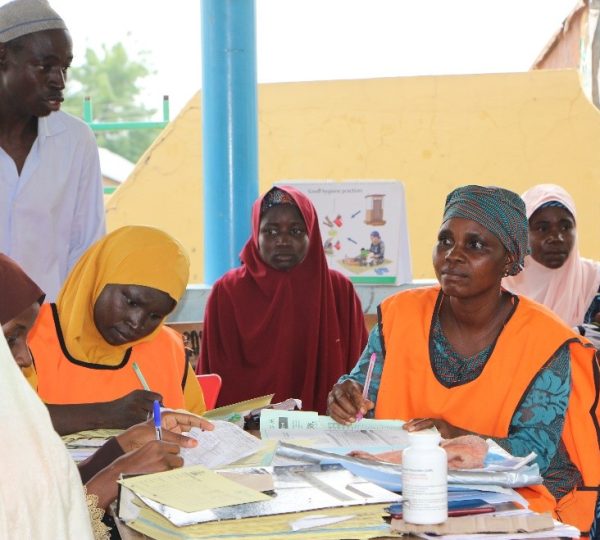
The CHIPS agents have also witnessed men stepping up and actively supporting behaviour change initiatives. “Men are [even] mobilising and helping to change behaviours and break down barriers [that hinder access to healthcare],” says Jummai Zubairu, CHIPS agent.
The impact of these efforts is evident in the positive outcomes experienced by the community. Mothers now prioritise antenatal care (ANC) visits, resulting in reduced delivery complications and healthier outcomes for mothers and babies. More mothers have embraced exclusive breastfeeding (EBF), ensuring their children receive essential nutrients for healthy growth and development.
In 2023, 87.5% of pregnant women living in the three intervention LGAs in Borno State received quality antenatal care services, and 89.2% delivered safely in the supported health facilities. Additionally, 72.5% of children under 5 years were treated for severe acute malnutrition, and 93.4% of children aged 0-6 months received exclusive breastfeeding. The CHIPS agent successfully mobilised and referred 664 women and 3,244 children with danger signs to access care at healthcare facilities.
CHIPS agents provide essential health services and information to address the immediate needs of crisis-affected communities. By providing accurate health information and raising awareness about healthy practices, they empower individuals to take charge of their well-being and encourage communities to adopt healthier behaviours in the long run, which fosters resilience and ensures sustainability.
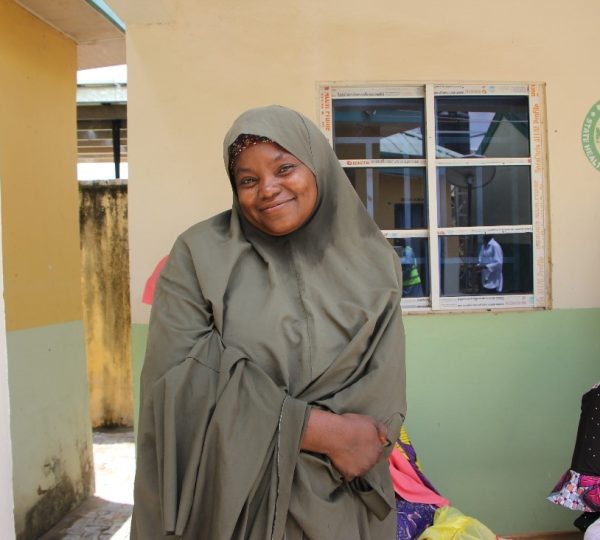
“CHIPS have brought in a new way of life for the communities,” exclaims Asabe Jibrin, a grateful mother in the community. “When I give birth, I usually lose a lot of blood and therefore require blood transfusions. [Thanks to the CHIPS promoting early antenatal check-ups and educating on pregnancy danger signs] Now, everything is normal!”
SFH is providing life-saving healthcare to vulnerable populations through the HeRON project in conflict-affected areas through more resilient health systems. For more information, click here or write info@sfhnigeria.org.

